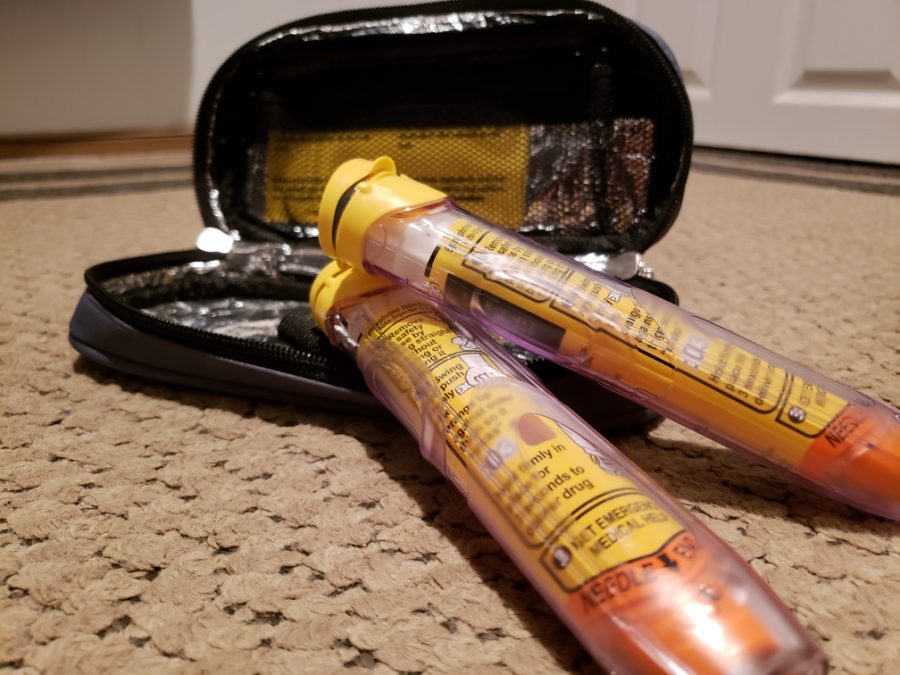Narcan; second chance or repeated problem?
Life-saving medicine used more frequently than original intent
After surgery, many patients are given medication to help relieve pain. Due to improper use or use in general, a patient can become addicted. This opens the door for many problems and possible overdose. A popular overdose reversal drug is Narcan.
According to CVS.com, Narcan or “Naloxone” is now available over-the-counter in most states. It can be found in various forms like a nasal spray, an injection done by a medical professional or an auto-injectable for anyone. In fact, doctors are suggesting that users have a nasal spray in the event of an unexpected overdose.
While Narcan can assist in the opioid epidemic, Beaver County has been hit by the epidemic rather hard. The county is now receiving federal money in order to fight the overdose problem. According to KDKA, a total of 1 million dollars from Washington D.C. is to be split between three counties in Pennsylvania: Allegheny, Washington and Beaver.
Fighting the opioid epidemic is no easy task and should be taken seriously. Anyone who takes opioids has the possibility of becoming addicted. Tolerance is another word for when becoming too familiar with a certain medication, that medication starts to lose its overall effectiveness if used more often than prescribed.
Addictions do not go away; they continue until help is accessed and the temptation is minimized. Narcan can be used repeatedly, and people can easily take advantage of the life-saving medication, using it multiple times in a day. Others understand how important it is to know your limits and receive the most accurate medical attention.
For example, junior Maxwell Ujhazy was diagnosed with diabetes at the end of third grade. In order to survive, he needs insulin regularly throughout the day. Medication is mostly covered by insurance, but not completely. Supplies needed for treatment normally come from out of pocket. Without insurance, supplies could cost over $3,000 for one month, while Narcan can cost around $20-$40 per dose.
“Without [insulin], I’d probably die,” Ujhazy said. “Prices have been raised, so companies can make money. They know it’s do or die, and so the people who need it will pay whatever it costs.”
EpiPens are another common over the counter medication. They are used for several different types of allergies, but there is no specific EpiPen for a bee sting or other common allergic reactions. Freshman Sarah Levenson uses an EpiPen for a peanut allergy. If she ingests specifically peanuts, she can swell and break out in hives, but once she uses the EpiPen, she’s okay.
One question that could be asked is, “Why is there such a difference in the price of both life saving treatments? Is it because one is considered an epidemic and the other is considered a luxury item?
Even if medications were all the same price, the value of each individual medication is different. People can choose to use opioids and use them irresponsibly, but people cannot choose to have diabetes or an EpiPen due to a fatal allergic reaction.
To prevent any possible overdose or allergic reaction, schools should be prepared with EpiPens, official nurses to help students with their insulin intake and even Narcan for students with addiction. Some elementary schools throughout the U.S. have even been stocked with this overdose reversal medication in the event of an emergency. The use of this drug should be monitored and given necessary help.
Just like in schools, everyday people should be monitored by how many times they purchase Narcan. According to Temple University’s school of medicine, around 80 overdoses a week occur at Episcopal Hospital in Philadelphia. Resources should be provided to reduce the number of overdoses and drug use in general. If action is not taken, Beaver County could be the next Episcopal



